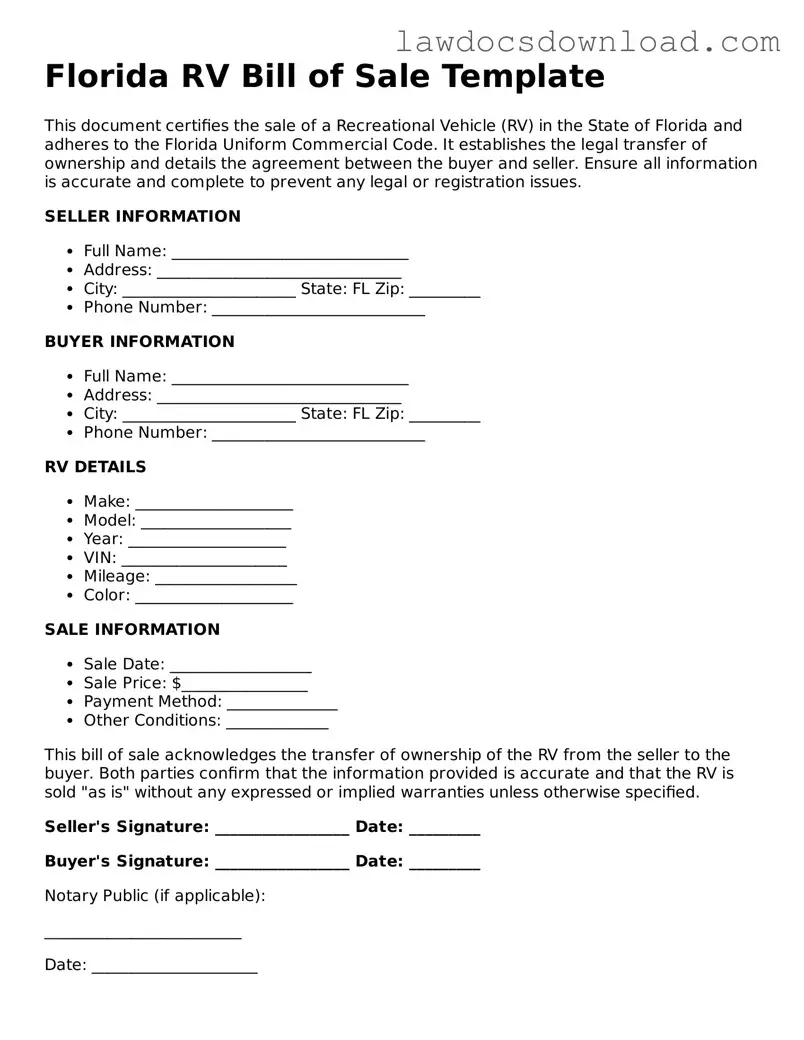The Florida RV Bill of Sale form shares similarities with the Vehicle Bill of Sale document. Both serve as legal proof of the transfer of ownership from the seller to the buyer. They typically include information such as the make, model, year, and Vehicle Identification Number (VIN) of the vehicle or RV, along with the purchase price and date of sale. These documents are crucial for the buyer's registration process at the Department of Motor Vehicles (DMV).
It is also akin to a Boat Bill of Sale, which is used when buying or selling a boat. Like the RV Bill of Sale, this document outlines the transaction details, including the boat's description, the names and addresses of the buyer and seller, and the sale amount. In many states, this document is necessary for the buyer to legally register the boat in their name.
A General Bill of Sale is another document similar to the RV Bill of Sale. This more flexible document is used for the sale of personal property items, such as electronics, furniture, or equipment. Though not as specific as vehicle or boat bills of sale, it also records a transaction between buyer and seller, offering legal protection and proof of ownership transfer.
Comparable in purpose, the Firearm Bill of Sale document is specifically designed for transactions involving guns. Like the RV Bill of Sale, it includes detailed information about the firearm, seller, and buyer, ensuring the legality of the transfer. It is a critical document for preserving the seller's liability and the buyer's ownership rights, especially considering the stringent laws surrounding firearm ownership.
Similarities can also be found with the Aircraft Bill of Sale. This specialized document records the sale of an airplane and includes identifying information about the aircraft, such as the serial number, model, and make, akin to the RV Bill of Sale. It's an essential record for both parties and is necessary for the buyer to register the aircraft under their name with the aviation authorities.
The Business Bill of Sale stands in line with the RV Bill of Sale when it comes to transferring ownership of assets, but in this case, it's about business assets or an entire business. This document outlines the sale’s specifics, including the names of the buyer and seller, a description of the assets, and the sale price, offering a legal framework for the transaction.
Last but not least, the Mobile Home Bill of Sale closely resembles the RV Bill of Sale since both deal with dwellings capable of being moved, though their legal treatment might differ. It documents the sale of a mobile home, detailing the make, model, size, serial number, and the terms of the sale. This ensures that the transfer is legally binding and recognized by authorities, similar to an RV sale.

